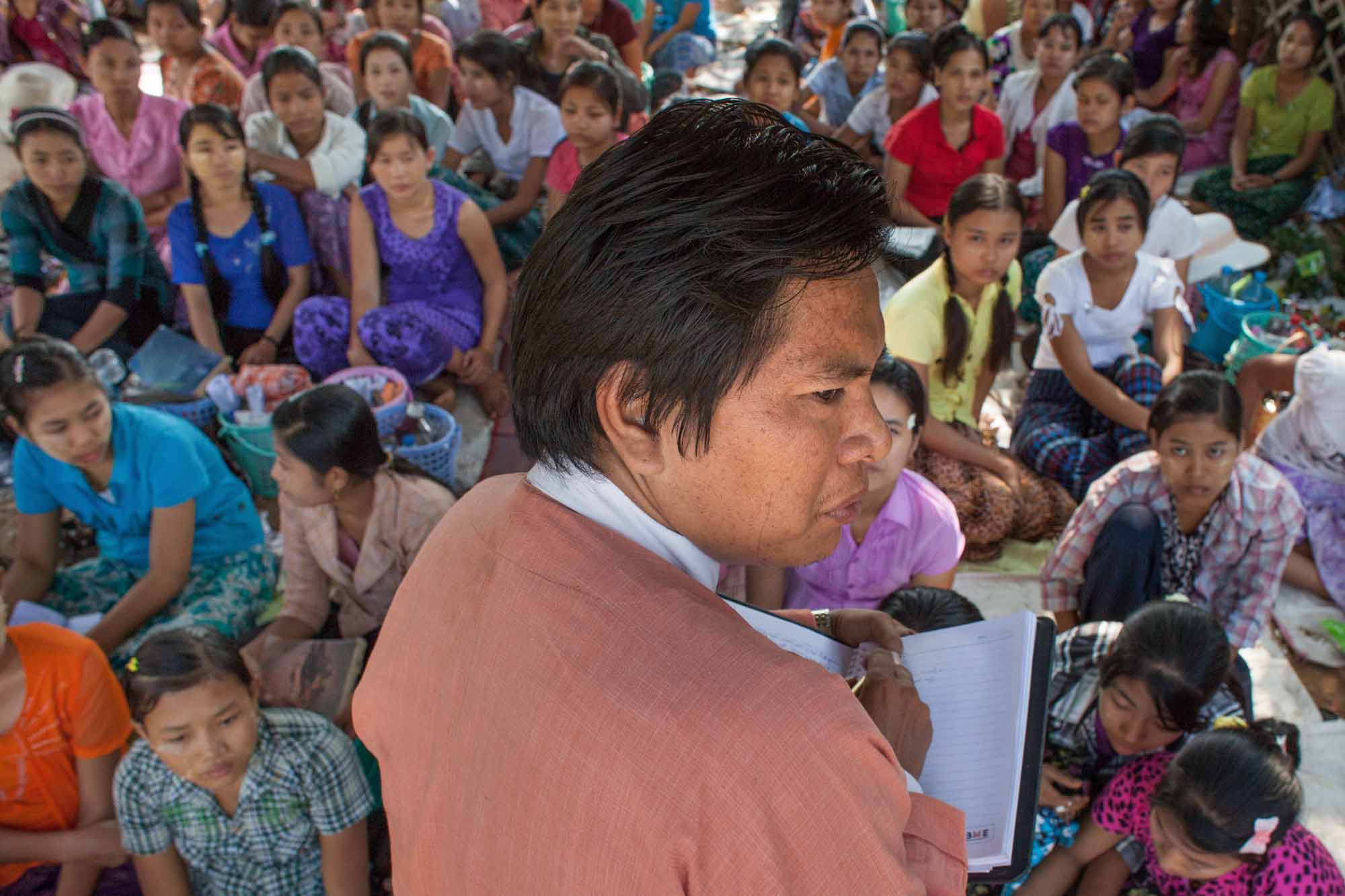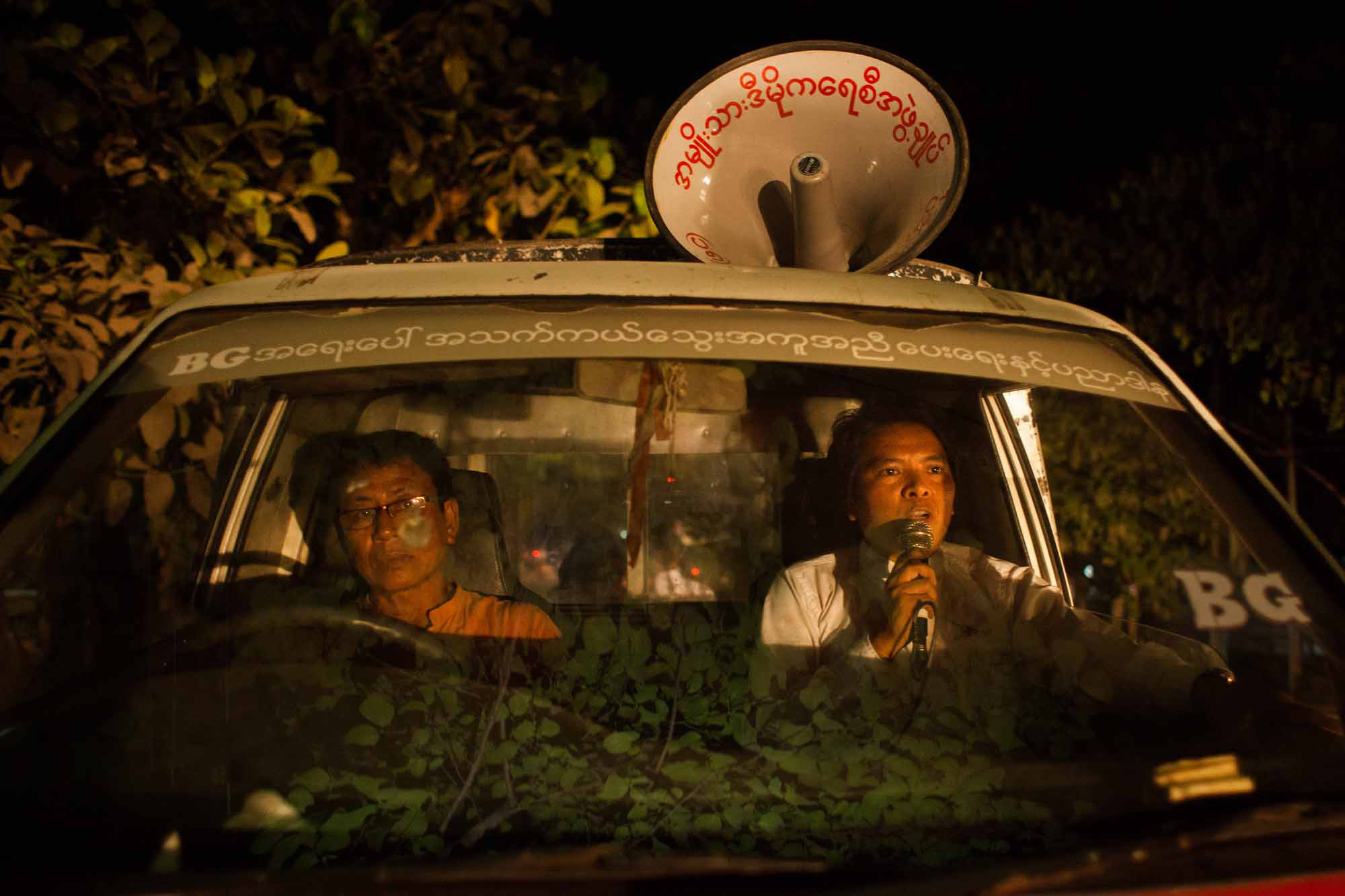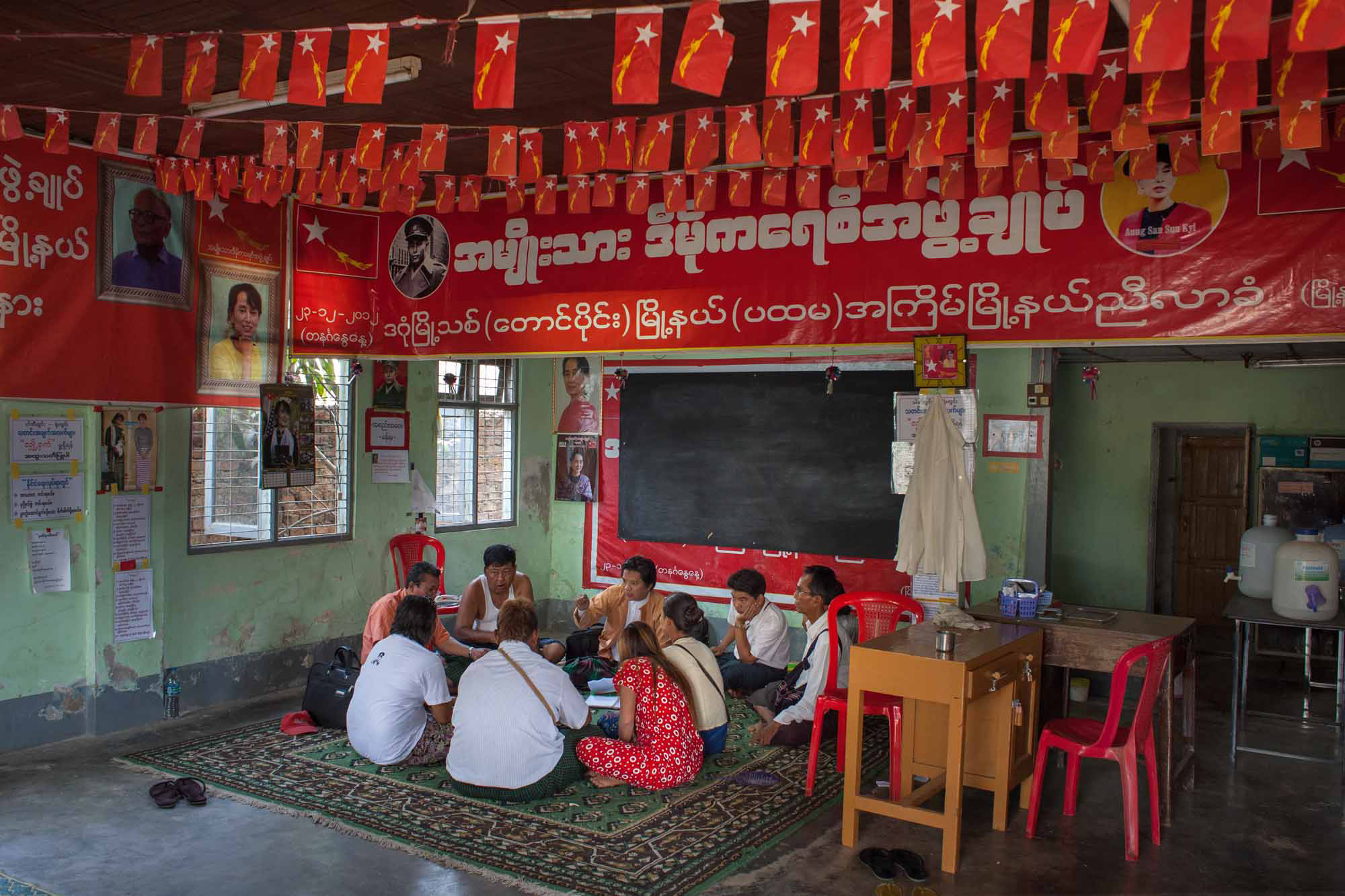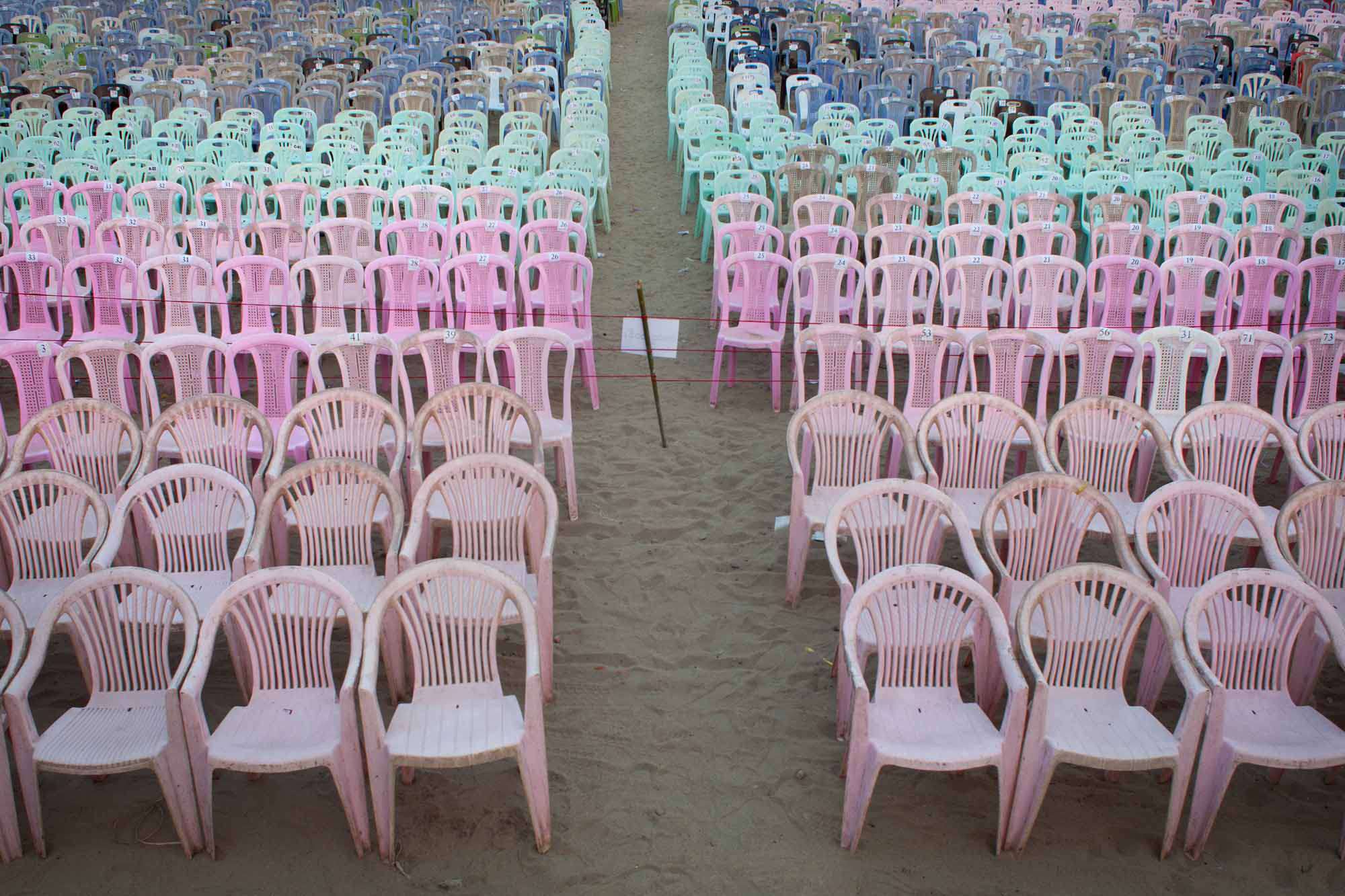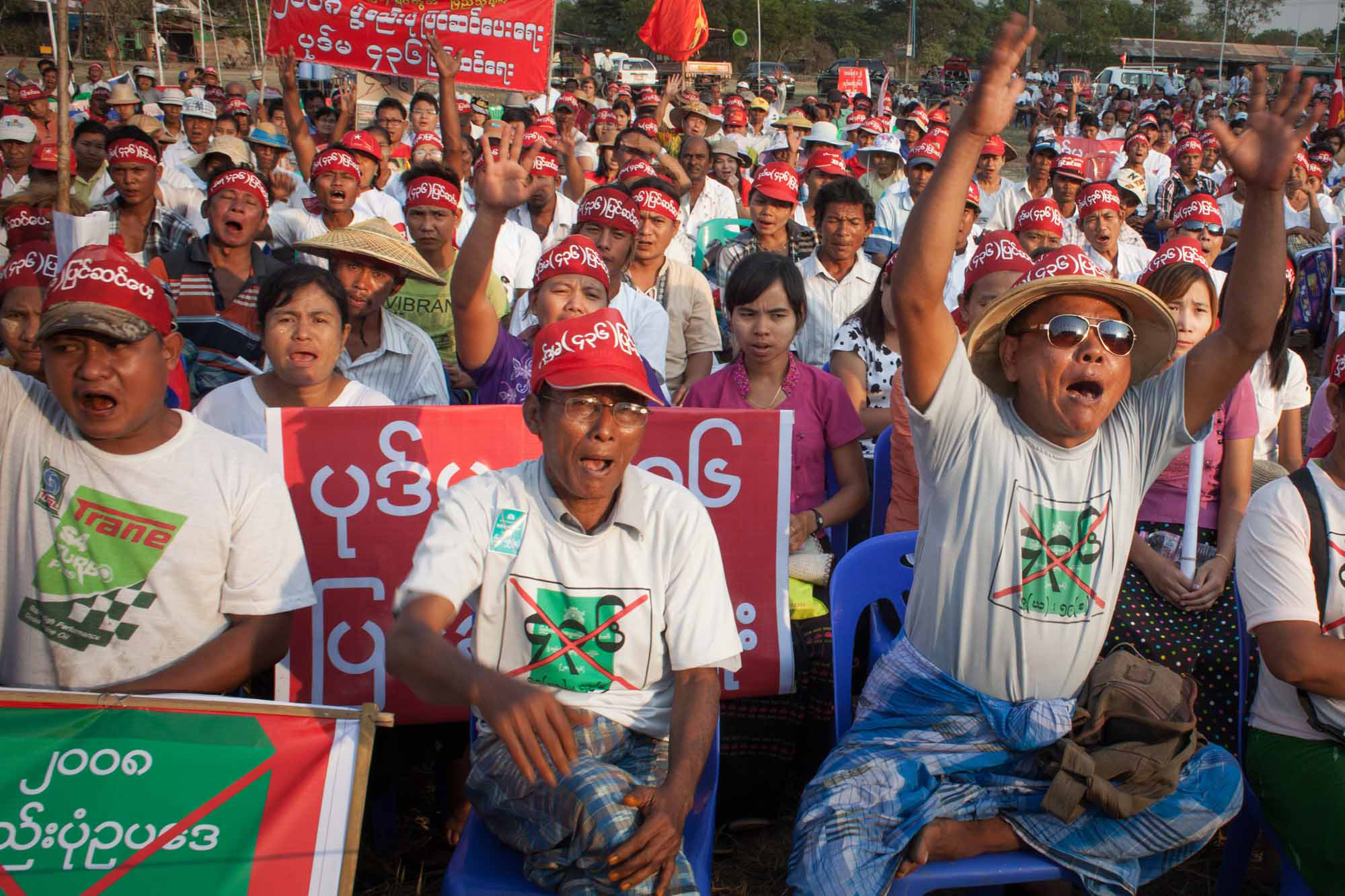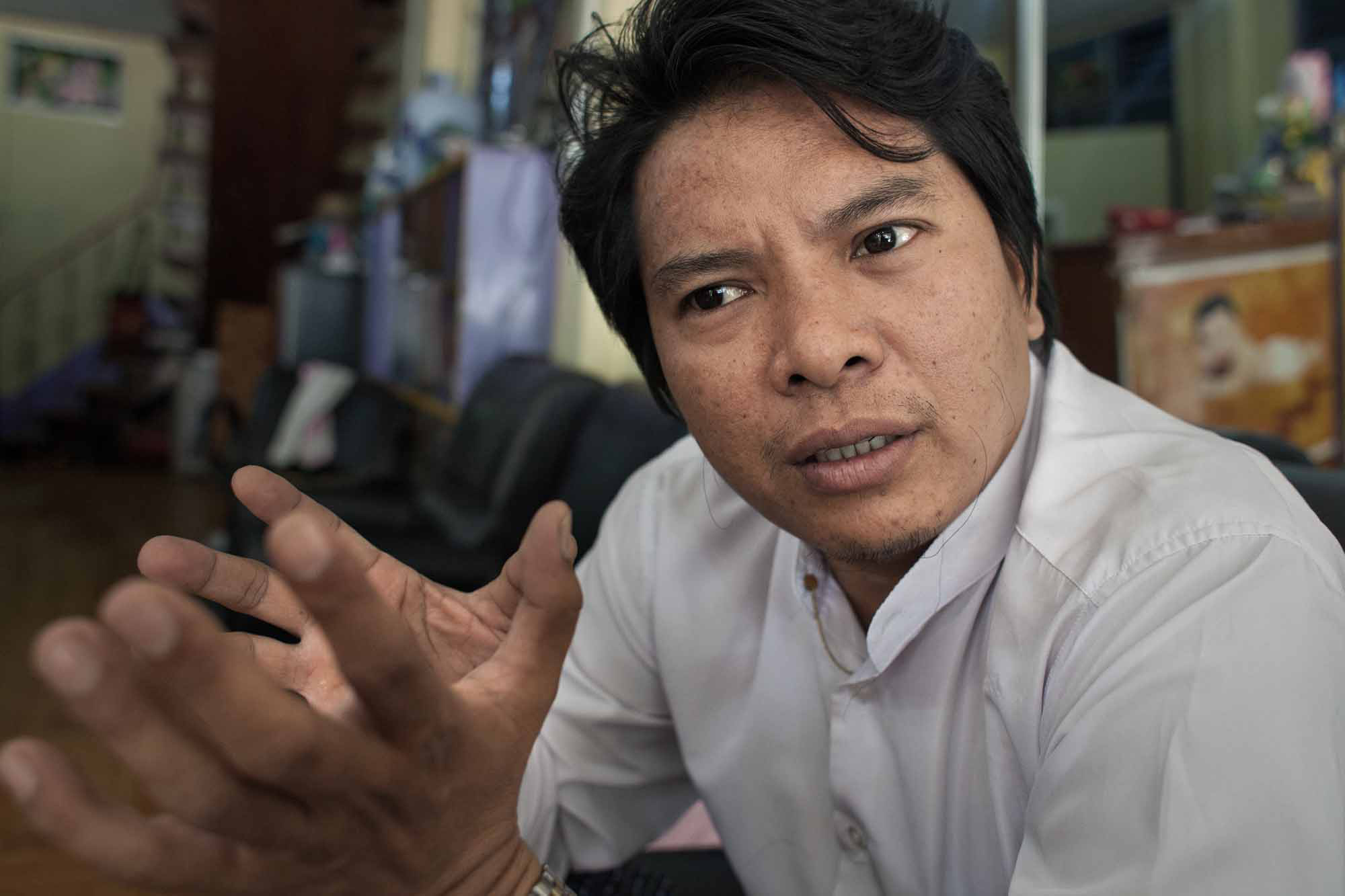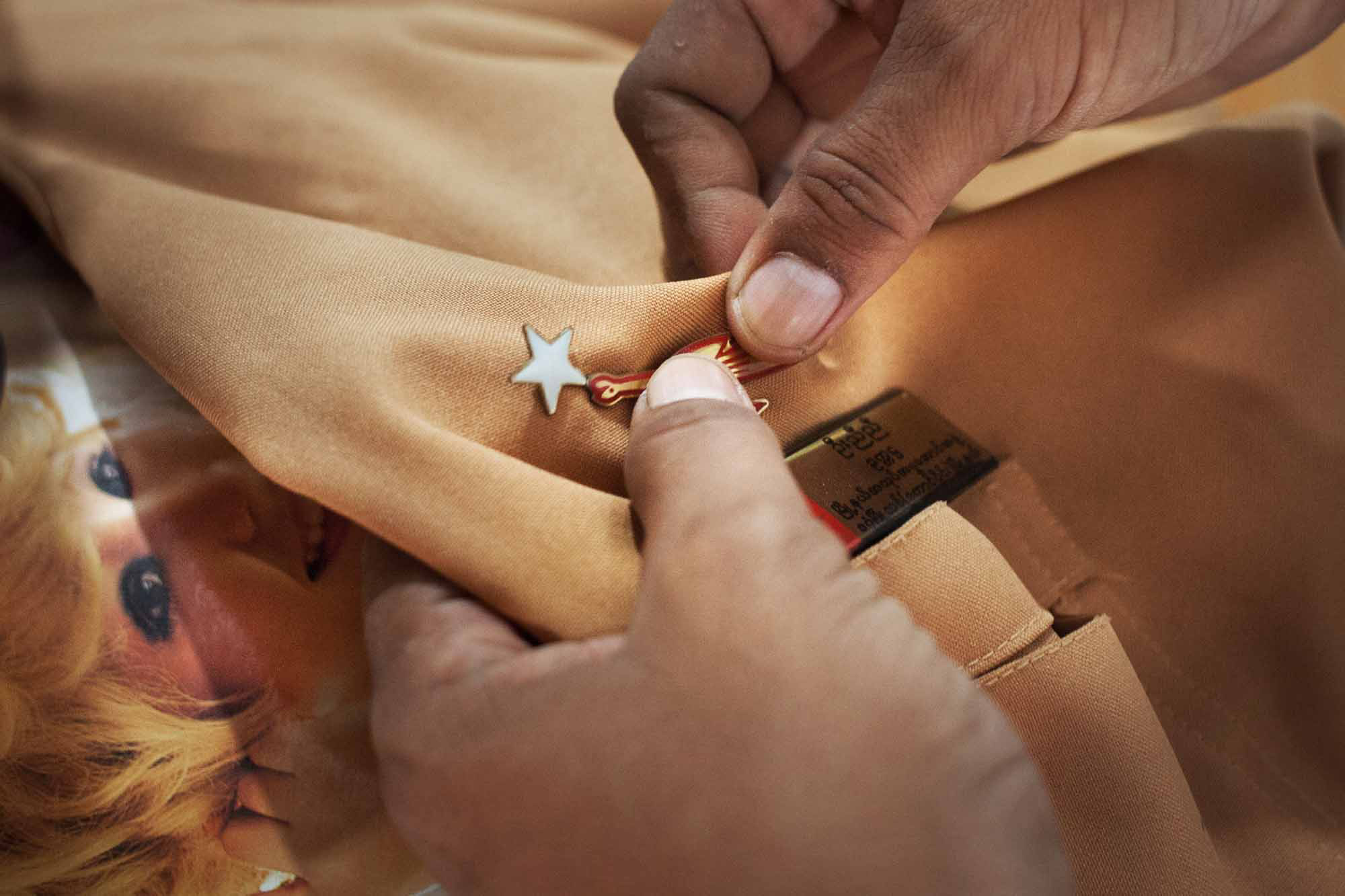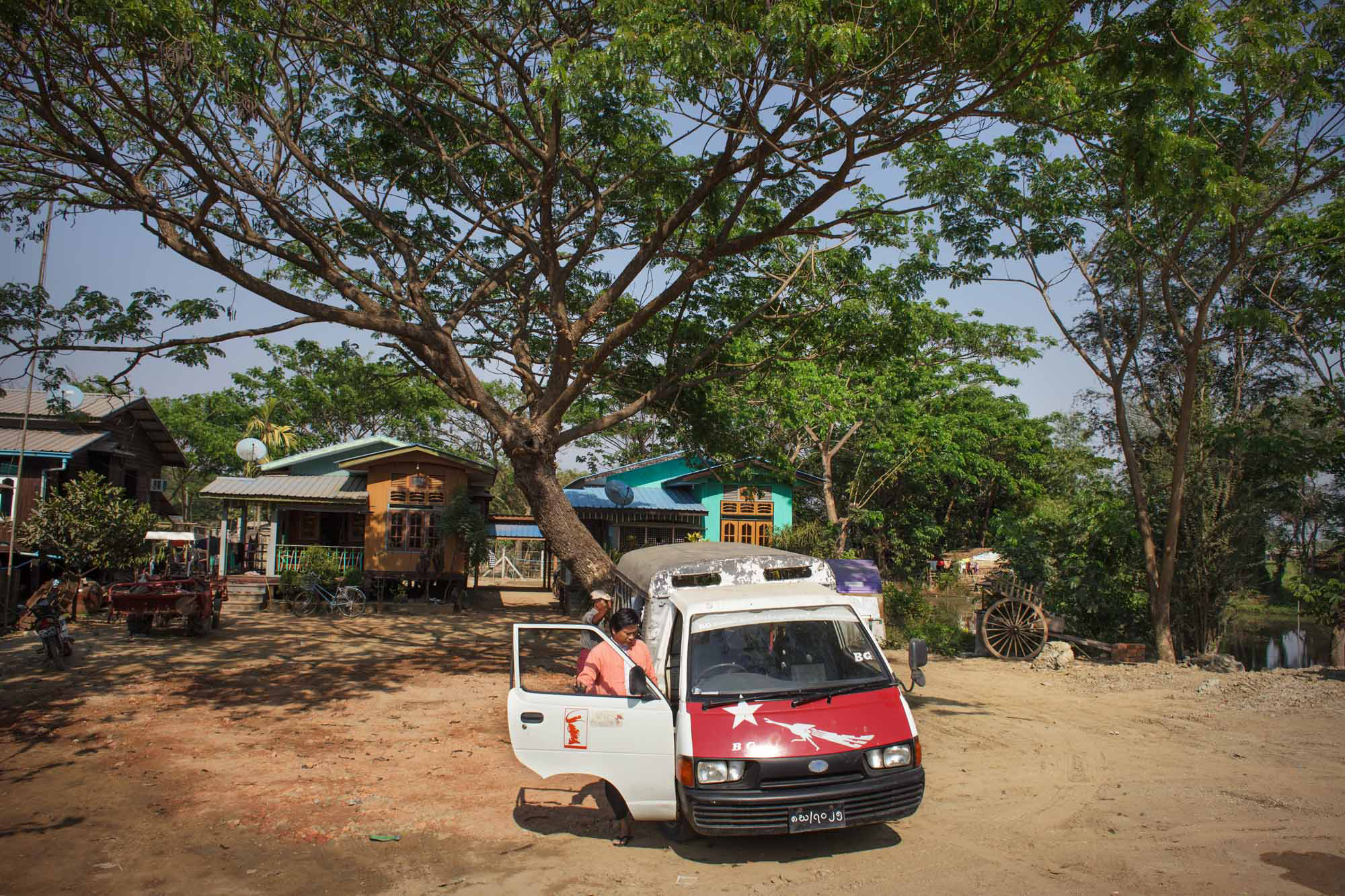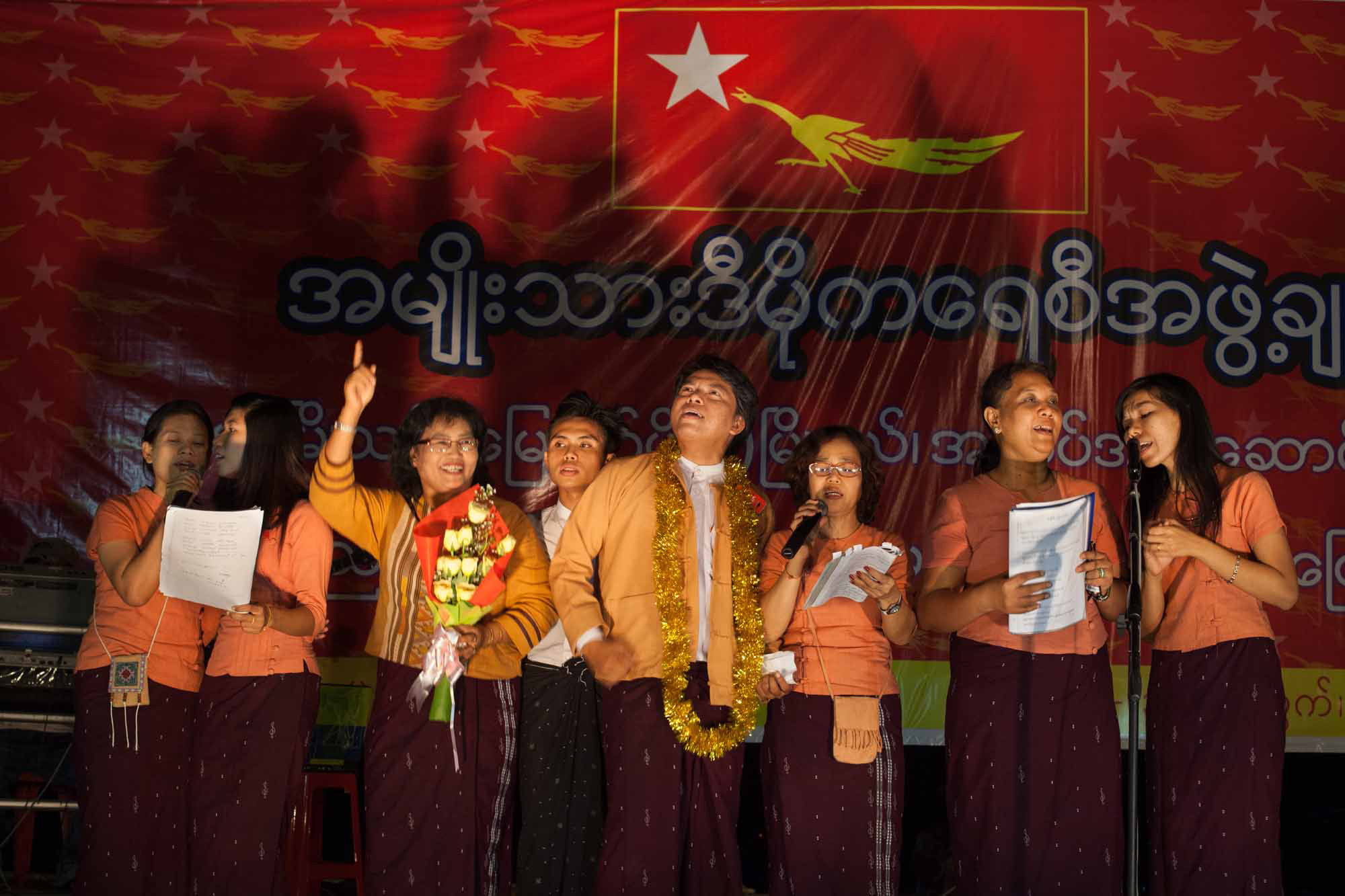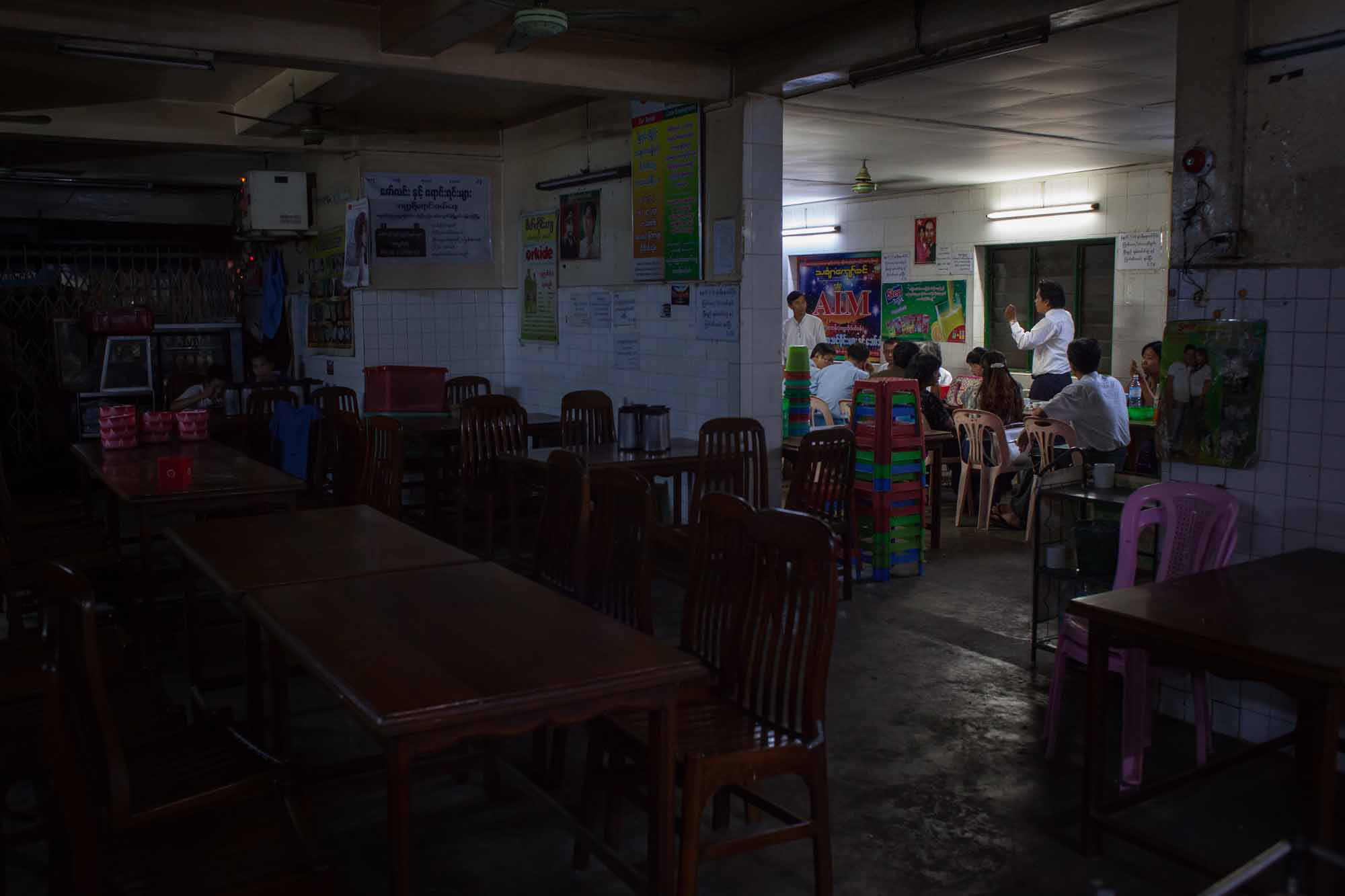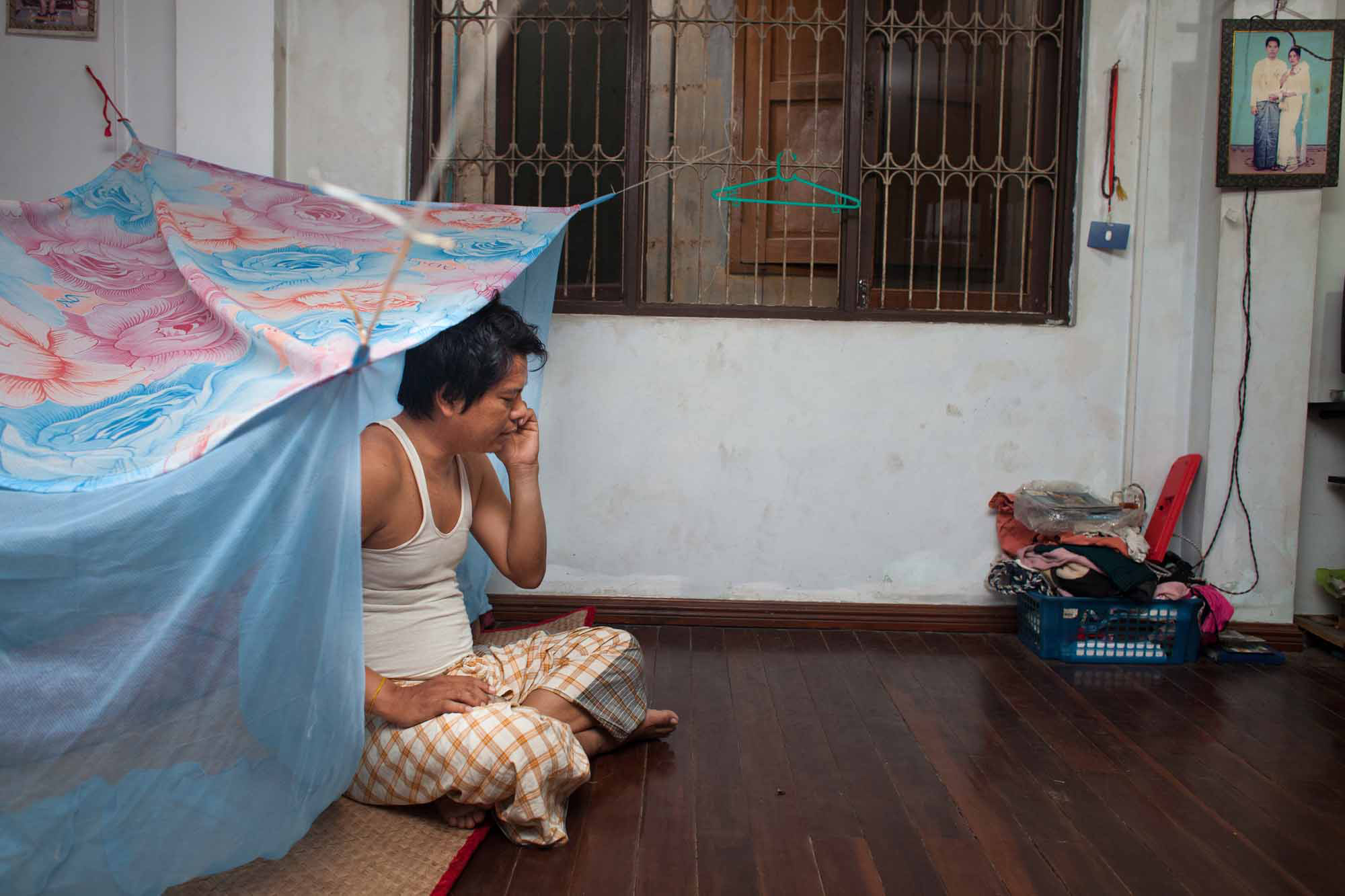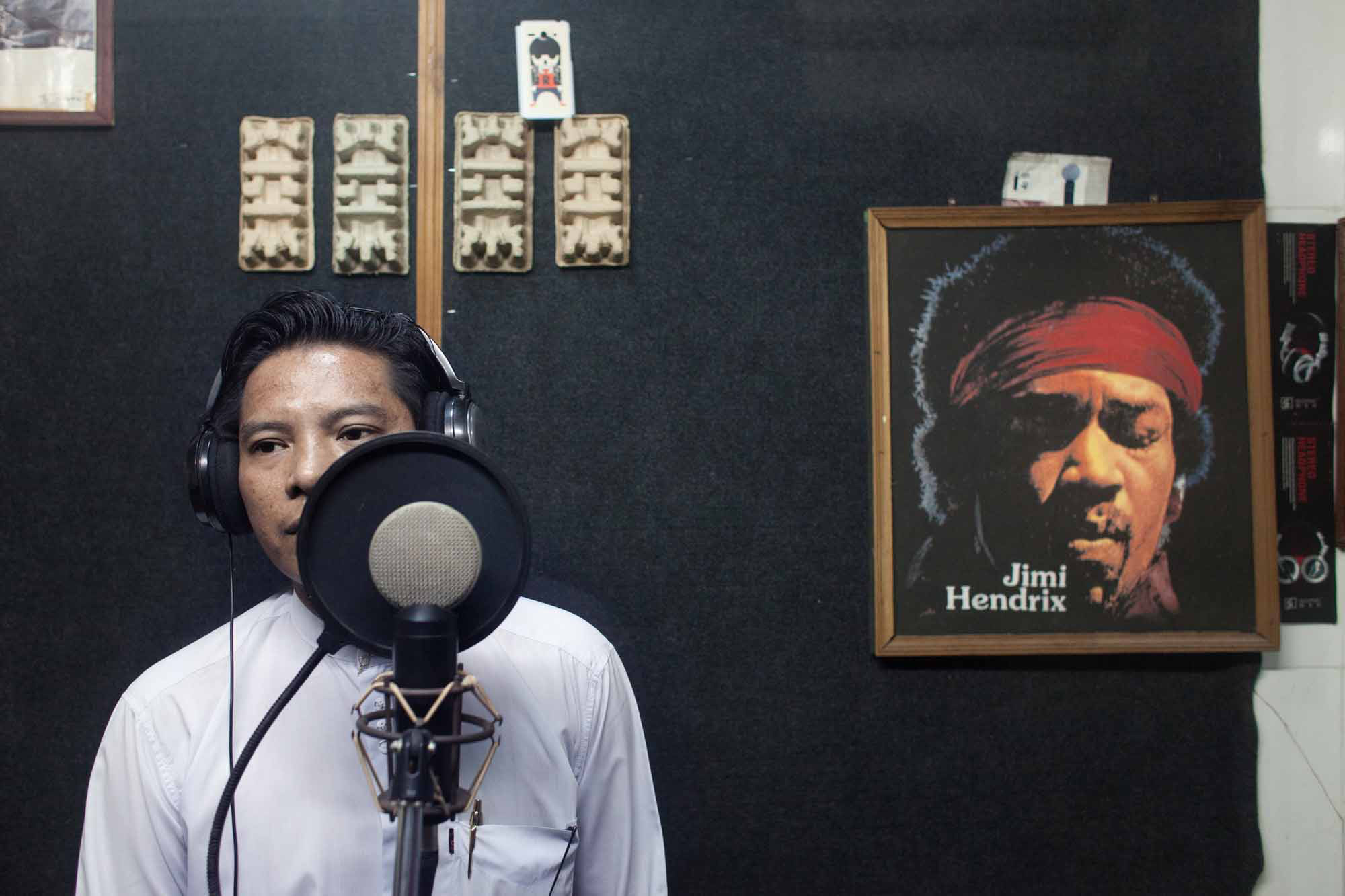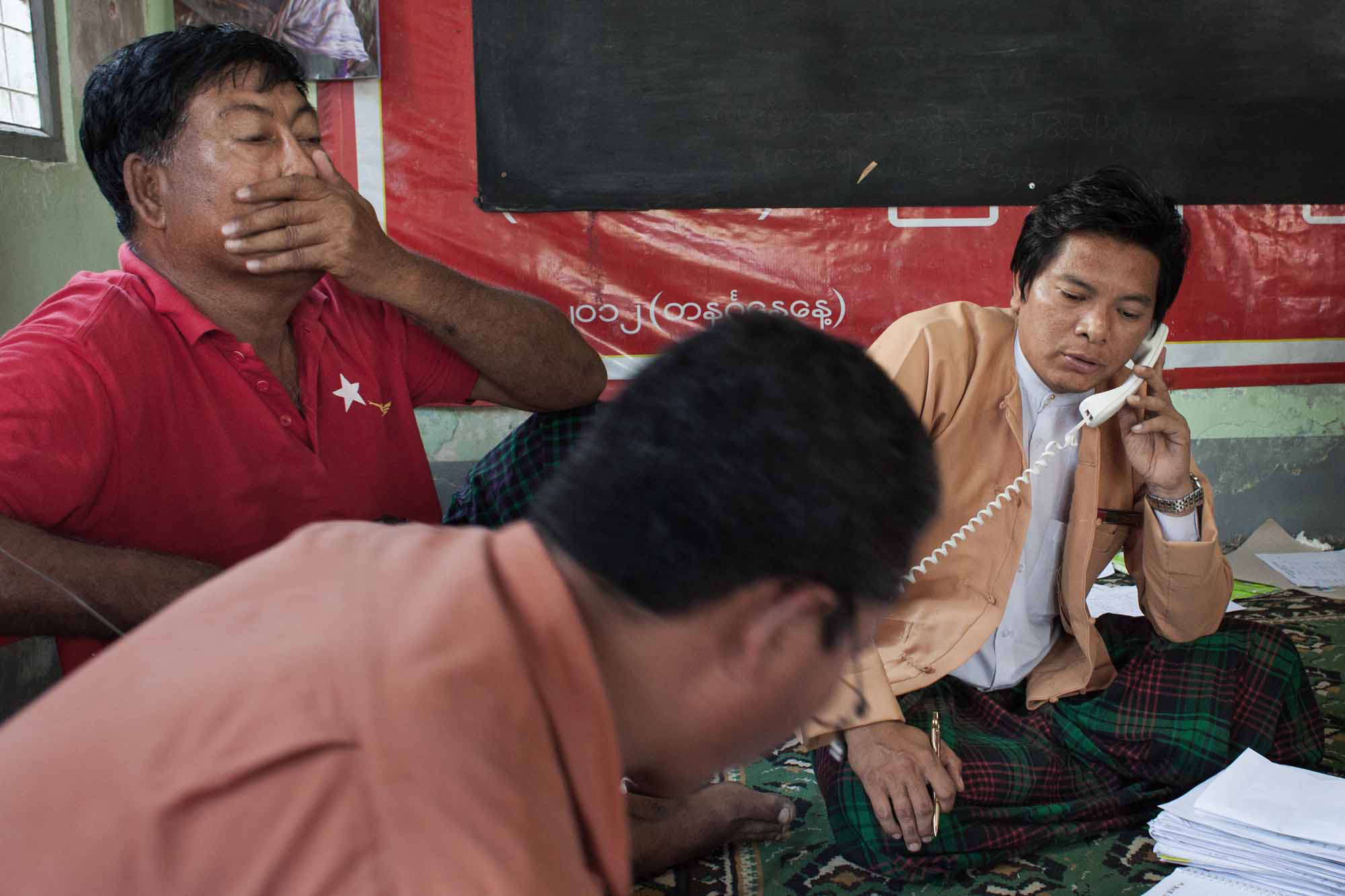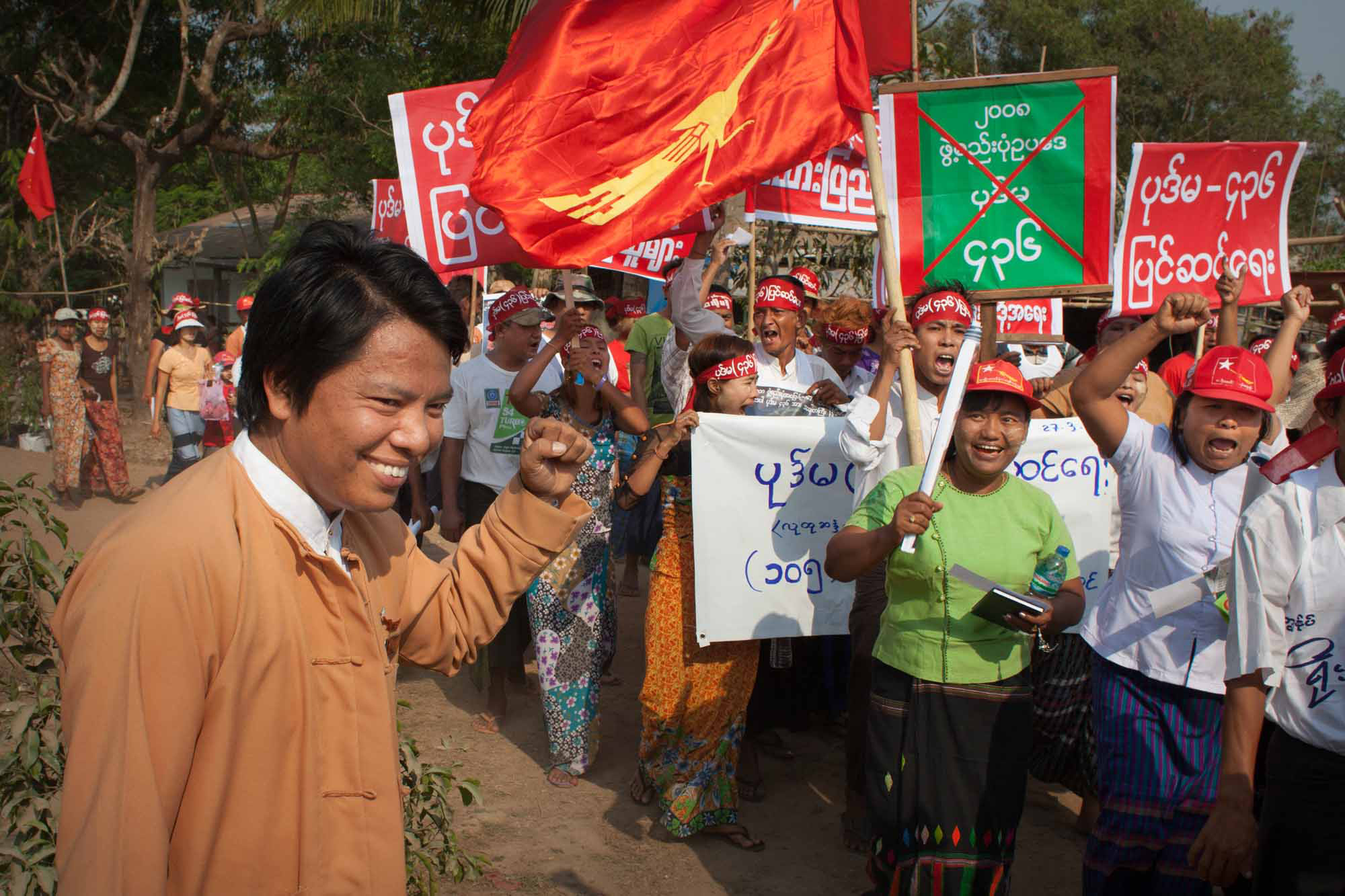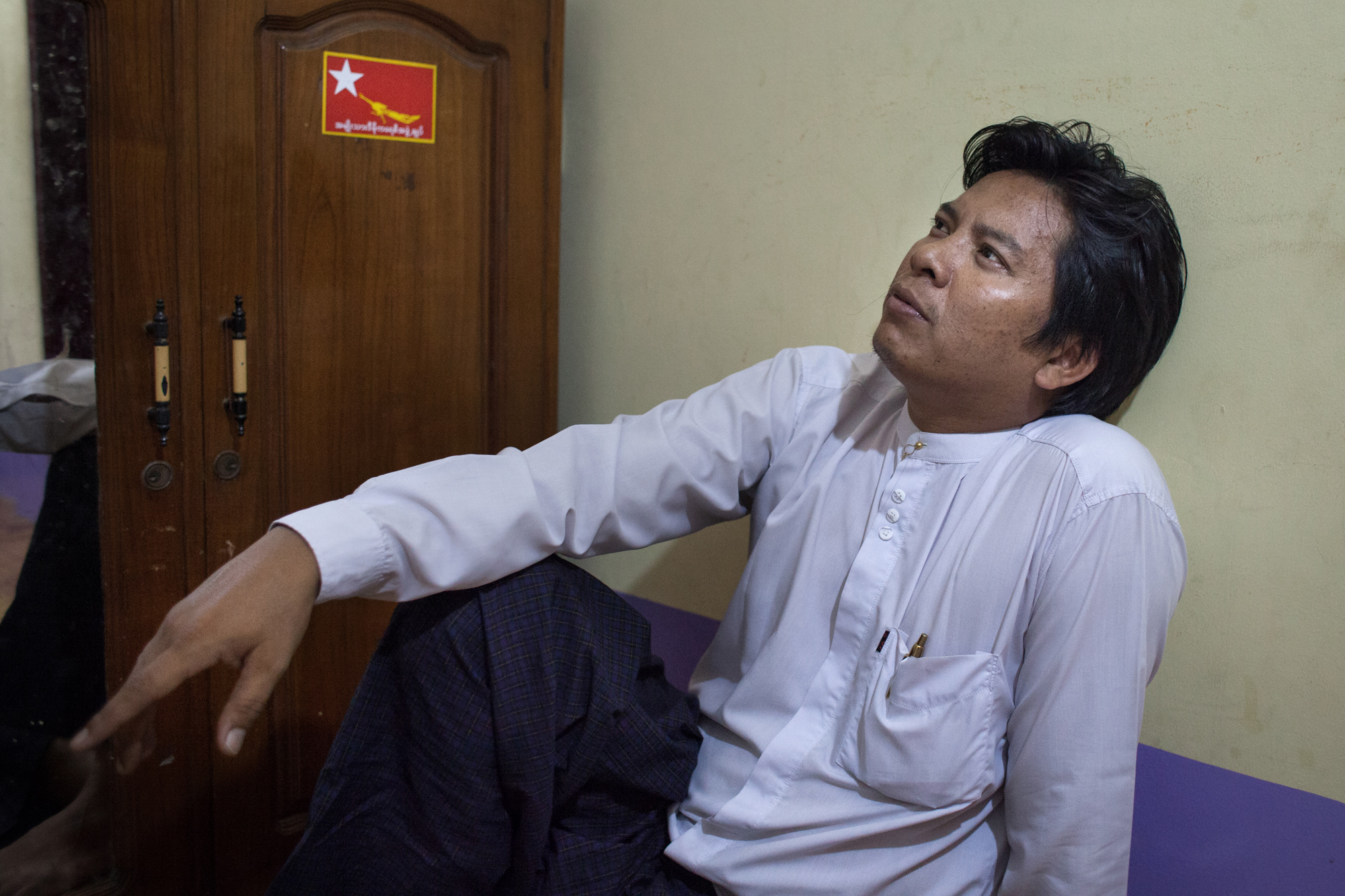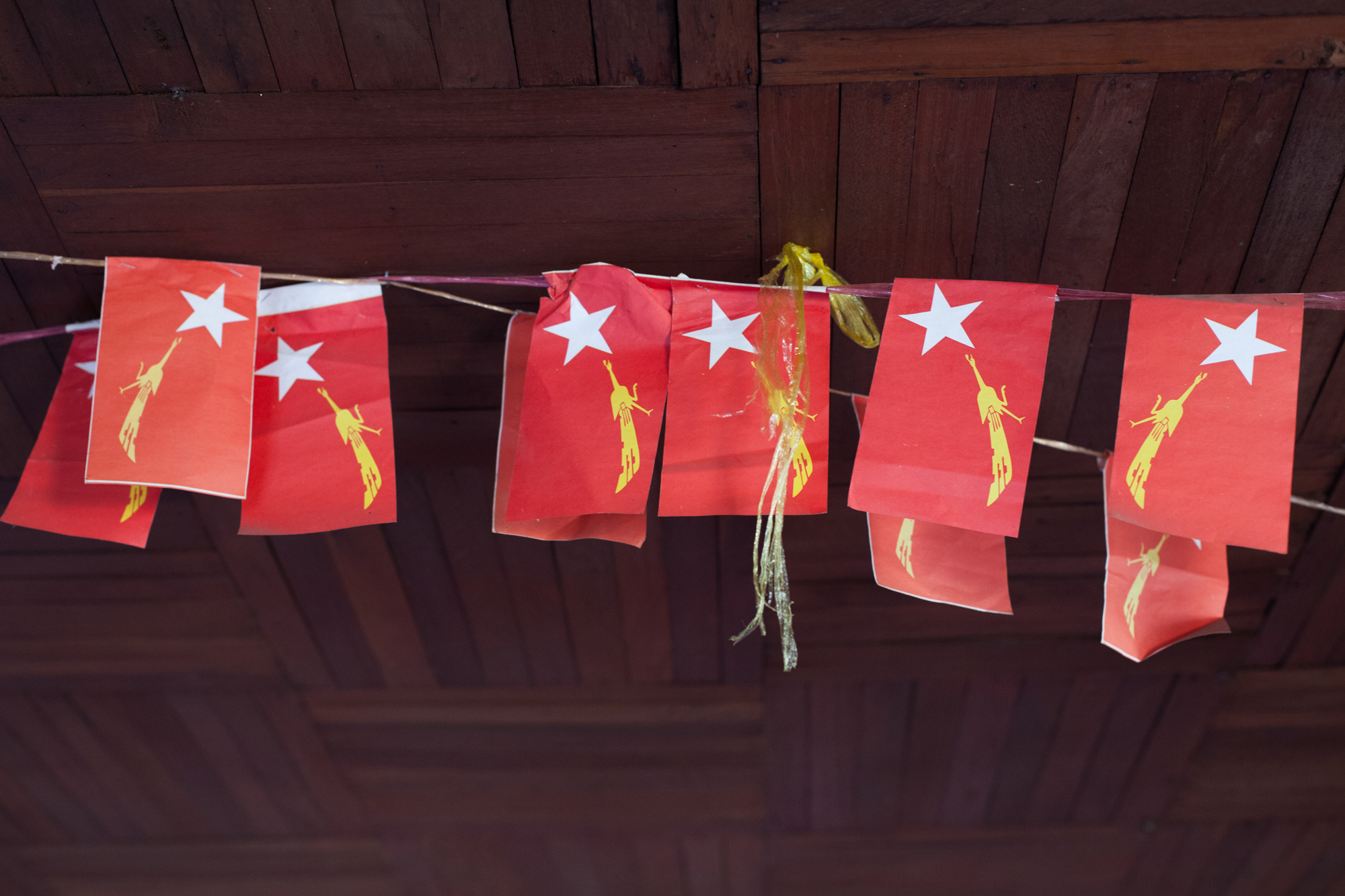Man on a Mission
Man on a Mission
"When I will stop? Never."
By Hans Hulst
His brother was murdered by the military and his family’s factory was confiscated. As a politician, Ko Nyi Nyi fights for justice. “Do you remember Adolf Eichmann?”
Time is a precious commodity for Ko Nyi Nyi, the 39-year-old executive committee chairman of the National League for Democracy’s branch in Yangon’s outer South Dagon Township. As I waited for our interview at a small school he established, where children are taught to use a computer, the politician bustled into the room. He was returning from the site of a land dispute, a mile down the road.
“The farmers want to take their land back by force.
They are holding metal and bamboo sticks. It could easily escalate.”
“The situation is tense,” Ko Nyi Nyi said. “Some crony businessmen are trying to turn a strip of farmland into a profitable development. It seems they are being helped by officials. The riot police were about to step in. I talked to the township administrator and the ward administrator about the land grab. As a result the police are now trying to find a peaceful solution. They have to hurry up, because the farmers want to take the land back by force. They are holding metal and bamboo sticks. It could easily escalate.”
Ko Nyi Nyi was born in Yangon’s inner Bahan Township in 1976. His parents owned a noodle factory and the family was fairly affluent. After the 1988 national uprising against military rule was crushed, the circumstances of the politically active family changed drastically. “I was in middle school at the time. Of course we protested against the junta. I still get goose bumps thinking about it. I was also involved in Red Star, a political movement in my neighbourhood. Many small organisations blossomed all around Yangon. Most of them disappeared again after the summer of protest. At the time twelve year old Ko Nyi Nyi had limited understanding of democracy. But Daw Aung San Suu Kyi (See: The Lady and the National League for Democracy) , the daughter of independence hero Bogyoke Aung San “made it clear what I had to do,” Ko Nyi Nyi Said. “Rise up and protest, and that’s what I did.”
As a young student, he flirted with death several times. One day an army truck full of soldiers travelled down Garden Road, where Ko Nyi Nyi lived. “We weren’t protesting and I didn’t even notice it. Then the soldiers in the truck stopped and opened fire. I only heard the sound of the bullets and saw the holes in the wall.” During that time political rallies were being held regularly downtown near city hall. The army responded time and time again by opening fire on the people. “The shooting never seemed to stop.”
Ko Nyi Nyi’s brother was arrested during the summer of protest and never heard of again. After a new generation of generals seized power on September 18, 1988, Ko Nyi Nyi and his family were forced by the junta to resettle in South Dagon. Their noodle factory was confiscated.
“It was like in the movies.
Even animals did not deserve
to live in a place like that."
South Dagon, a township of about 800,000 people and one of the poorest in Yangon, was in much worse shape than it is now. “The road was very bad. There were no trees. It was like in the movies, a bad refugee area. It was not where we belonged. Even animals did not deserve to live in a place like that.” South Dagon remains a grim environment today. Infrastructure, healthcare and education are basic at best. “But the most important thing we need are jobs. So many people are out of work here, especially our youth. They sit in beer bars and teashops, and go to clubs. They do drugs. They are stuck, because they don’t have any opportunities. This is the fault of the old regime. We need to do something, because our youth are the future of Myanmar.”
Ko Nyi Nyi is a founder of a civil society organisation called the Blood Group. Since 2011, the Blood Group has been striving to raise education and healthcare standards in seven of the country’s 14 states and regions, and in ten Yangon townships, including South Dagon.
In early 2014 Ko Nyi Nyi helped negotiate a deal between striking workers and the management of the German-owned Hercules garment factory, which he said was paying its overworked employees K1,500 a day. “I get around 700 cases per year and solve about 600.”
Kno Ny Nyi is very critical about the Yangon City Development Committee. “They do not do enough to improve infrastructure and services in South Dagon. The committee, led by former army men, refuses to take responsibility and is not transparent about how it spends its money.”
In the November 8 election Ko Nyi Nyi hopes to run for a seat in the Amyotha Hluttaw (the Myanmar parliament). One of the reasons he is seeking office is because, if elected, he wants to create more jobs in South Dagon. “In the Hluttaw I can do ten times more. If I can educate a hundred kids now, I can develop a thousand as well,” he said.
In the mean time money remains a problem. The Blood Group can hardly get by, and the NLD is struggling to get its finances together for the November 8 general election. The main opposition party is trying to make ends meet by selling NLD souvenirs: T-shirts, Daw Aung San Suu Kyi calendars, umbrellas and books. Some businesspeople and NLD members living abroad have donated money, but that is mostly spend on the party’s health and education activities.
According to Ko Nyi Nyi the ruling USDP [Union Solidarity and Development Party], a party formed by ex-army officers, has an unfair advantage. “Everything is taken care of. Even their office space is free. But for us just to get office space, we have many hurdles to overcome. The NLD leaders are very strong though. They had to forego their family and their personal well being.”
Times have changed, but not quite. “The USDP is bad. They hit us and we had to run, and they still try to give us trouble. But not like before; they work incognito. For example, when I give a speech they have people at proxy organisations who will give us trouble. If they truly want to work for the good of the country, we are willing to cooperate. But I don’t believe they will change.”
Ko Nyi Nyi suffered deeply when his family was relocated and his brother disappeared. In 2000 he was jailed by the ruling junta for four months for political activities. He tries to assuage his anger with forward-looking thoughts about the next generation. But the driven politician still finds it hard to forget.
“I will be politically active until my body cannot work anymore.”
“The former military government that tortured the people will one day get what they deserve. Unfair laws that protect them will disappear. It might take time. Do you remember Adolf Eichmann? This Nazi-official was tracked down and arrested decades after the World War II. He was prosecuted. The military government, of which current President Thein Sein and former parliament speaker Shwe Mann were members, has done so many bad things. The NLD is forgiving the generals, for the benefit of the country. Whether the Myanmar people are satisfied by that remains to be seen.”
As for his political career, Ko Nyi Nyi cannot imagine a time when he will not be on a soapbox trying to change his country. “When I will stop? Never. I will be politically active until I am 80 or 90, probably until my body can not work anymore.”
The Lady
and the National League for Democracy
The political career of Aung San Suu Kyi began by accident. The daughter of independence hero, Bogyoke Aung San, she had been living abroad for decades when she returned to her homeland in 1988 to nurse her ailing mother. A national uprising in 1988 had come within weeks of ousting the junta before it was brutally suppressed by the military in an operation launched in September.
Bogyoke Aung San was assassinated the year before independence in 1948 and Daw Aung San Suu Kyi entered the political arena 40 years later under the aura of the family name. Her first speech, at the Shwedagon Pagoda on August 26, 1988, drew a crowd of more than 500,000 spectators. A star was born and the world noticed. Foreign journalists were soon flocking to interview the photogenic, articulate Daw Aung San Suu Kyi, who soon became an international media darling.
Daw Aung San Suu Kyi and a ragtag group of former communists, disgruntled ex-army officers and political activists established the National League for Democracy in September 1988.
The Lady’s star rose even further after she was put under house arrest in 1989 and the NLD won a landslide in the 1990 election for an assembly to draft a constitution. The junta responded by arresting newly-elected members of the constituent assembly. In 1991, Daw Aung San Suu Kyi was awarded the Nobel Peace Prize.
The NLD boycotted the 2010 general election, held a few days before the Lady was released from house arrest on November 13. After an historic meeting with President U Thein Sein in Nay Pyi Taw on August 19, 2011, the NLD re-registered as a political party. It returned to the election arena for the first time in 22 years the following year, winning 43 of the 44 seats it contested in by-elections held in 46 constituencies.
The participation of the NLD in the by-election resulted in an easing of the sanctions that had been imposed on Myanmar and some observers said the Lady had been manipulated to advance the agenda of the former army men in the post-junta government.
In 2015, much of the international appeal of Daw Aung San Suu Kyi has faded. She has attracted criticism abroad over her failure to speak out more forcefully about the treatment of the persecuted Rohingya Muslims of Rakhine State and over her party’s failure to name any Muslims among its 1,090 candidates
for the November election. She is also distrusted by the leaders of some of the country’s main ethnic minority groups. But her popularity among the Bamar remains largely intact and her adoring masses will ensure the NLD performs strongly in the first national election it has contested since 1990.

